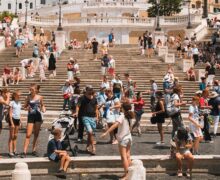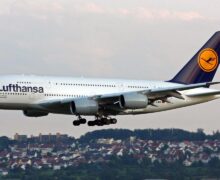Botswana – taking the coward’s way out
 Fastest growing economy in Africa chooses not to fight the facts.
Fastest growing economy in Africa chooses not to fight the facts.
For a long time Botswana has been seen as a peaceful African country and a birthplace for sustainable tourism in the continent. Maybe the fact that it has a very un-warlike past attests to its attitude to sustainability – plus of course the event that created its massive economic success – the discovery of diamonds, allows Botswana to take a firm stance of sustainable tourism.
Botswana is not cheap. If you visit for a holiday you’ll pay top dollar but in return you’ll get a memorable, maybe life-changing experience worth saving up for.
Largely because it’s a peaceful country Botswana has an enormous and increasing population of elephants – the fact is that elephants don’t like wars all around them so they’ve moved into calm, chilled out Botswana where they are left to get on with their lives.
It helps that there is a great deal of wilderness in Botswana too – it’s a country of nearly 250,000 square miles (that’s twice the size of Germany) with a population of about 2 million (Germany’s got 82 million) – so there is no pressure on space. That’s great for the 300,000 elephants who live there.
The government has concentrated on tourism and diamonds – which is good for the elephants and the wilderness which comprises of mainly the Okavango Delta and the massive Kalahari Desert, both astonishing, by the way.
This means that farming has rather fallen by the wayside so that Botswana can concentrate on its key assets – one of the world’s great wildernesses plus one of the world’s great inland deltas. But farming has not fallen out of the picture entirely -it’s just by the wayside superb cattle are to be seen by every road. And Botswana’s search for excellence reflects itself in its cattle too – its beef, 2 million steers grazing on communal land, is said to be some of the very best in the world and exported to wherever quality is sought.
The discovery of diamonds helped, but basically Botswana has been a leader in sustainable tourism for a long time now and at the forefront of top quality safari holidays.
Thompson wouldn’t be ill at ease managing a 5 star establishment anywhere in the world.
Tourism and wildlife training is at the top of the agenda together with hospitality training, hence the quality of informed service is astonishingly good – and the opportunities for hospitality staff personal development. Not only does this mean that visitors get real service but also that there are quality tourism job opportunities.
This informed attitude from a centre of excellence has led to businesses like Abercrombie & Kent, & Beyond, Wilderness Safaris and Desert and Delta to prosper sustainably and new initiatives to appear.
Travel for Impact https://travelforimpact.com/ is a local social initiative set up to make the most out of tourism for local people in a multitude of ways from crafts to veterinary services to looking after the elderly – all funded and supported by the tourism industry.
Another example of a sustainable can-do attitude is Chobe National Park – stuffed with wildlife – where an all-female guide team drive all-electric safari vehicles and electric launches. Simply: The decision to employ exclusively women grew organically out of something very practical: the bottom line. Back when the guide team was male and female, the managers quickly noticed a pattern: Vehicles driven by women used less fuel, required fewer repairs and lasted longer over time. Simply put, the women were better drivers. They were saving the company money.
A practical attitude to sustainability that reflects itself in Botswana’s sustainably high quality and a reason that the country has not one but two destinations in the Top100 Sustainable destinations.
source: Travel Mole




